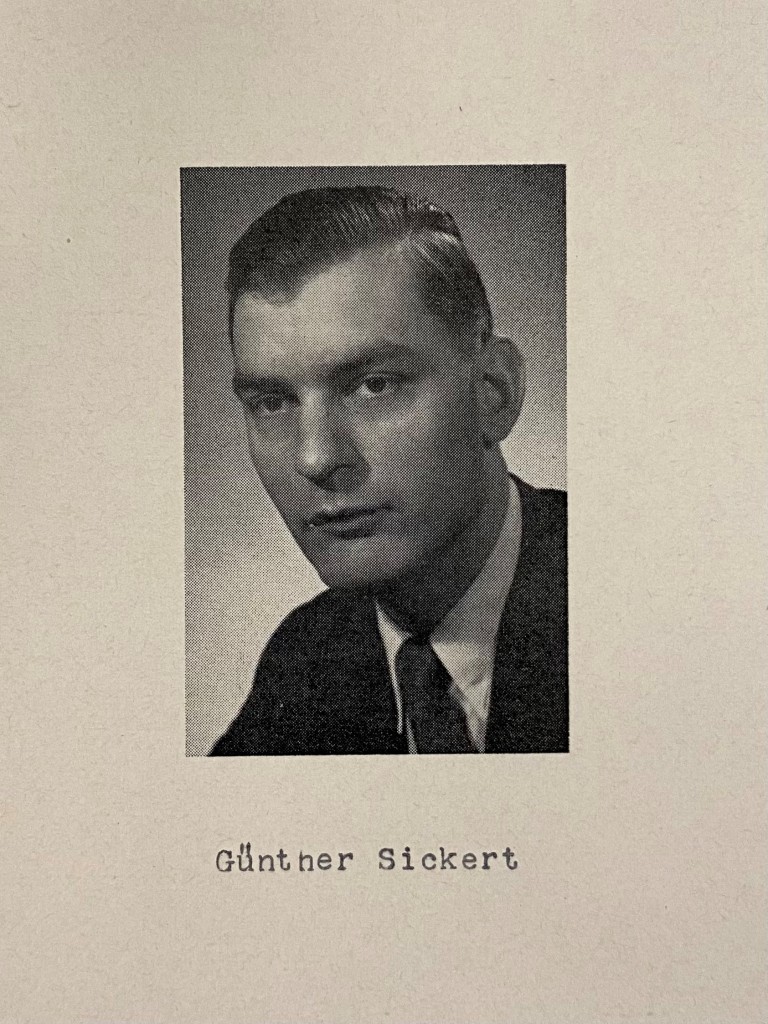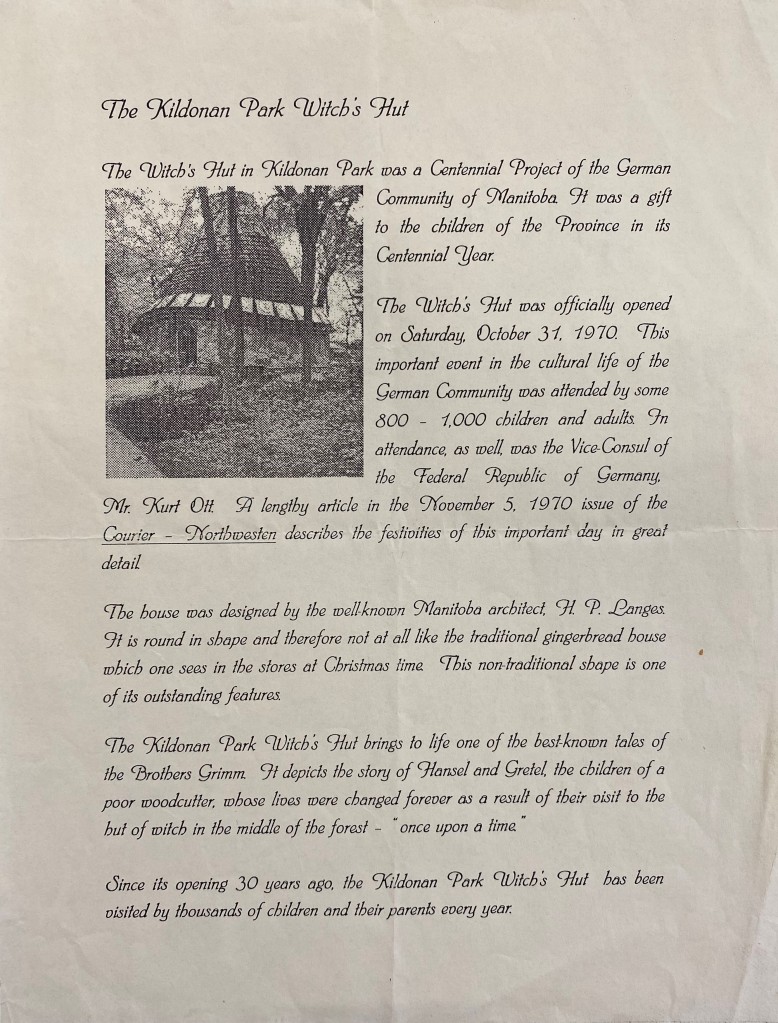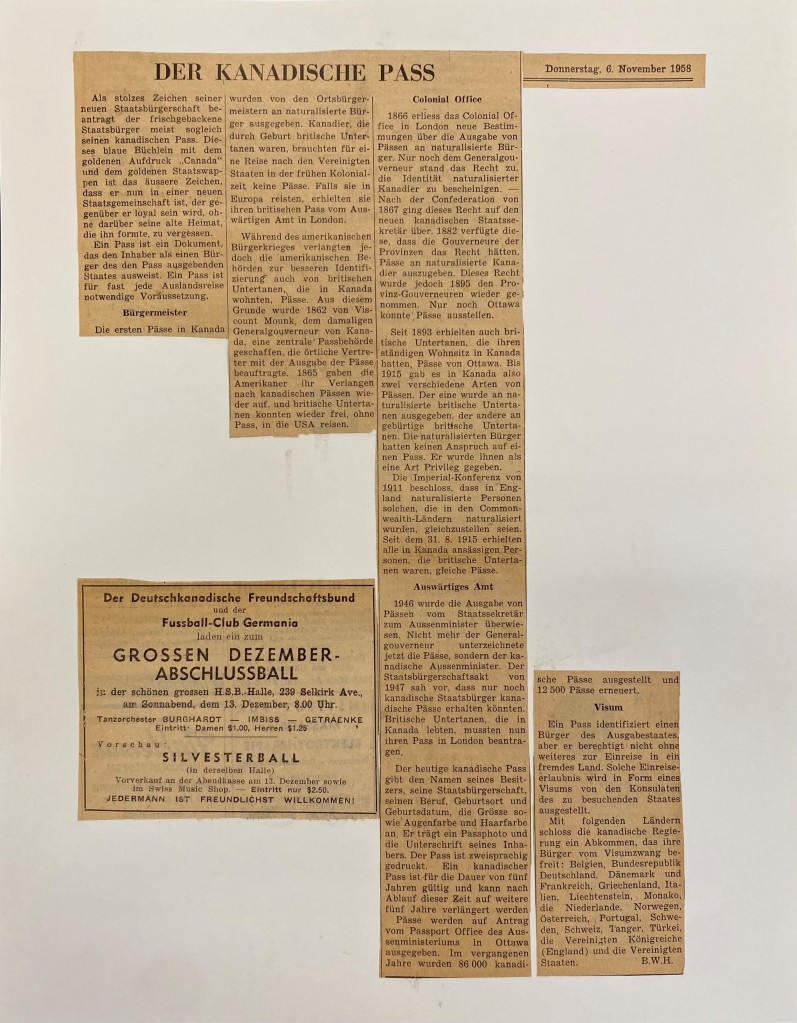At GCS, we’ve been working to create our very own archive of German-Canadian personal documents that will be part of the larger University of Winnipeg Archives. It is a slow-moving, time-consuming process: once a collection is received, much of the work involves analyzing, describing, cataloguing, and safely storing each record. But thanks to the diligent efforts of former GCS staff Karen Brglez and Claudia Dueck, and a few finishing touches by me, our first collection is now available for in-person access!
The Günther Sickert Collection is a compilation of curated records showcasing Sickert’s and other community advocate’s activities within and contributions to the German-Canadian community between 1890 and 2012. They were donated in 2015 to the Chair in German-Canadian Studies at the University of Winnipeg by Sickert’s wife, Gerda. These records provide invaluable insights into the points of connection that helped German migrants navigate Canadian society while maintaining and celebrating their cultural heritage.
So, who was Günther Sickert?
Born Karl August Günther Sickert on May 16th, 1928 in Ober-Mittelebersbach, Saxony, Günther Sickert was the oldest of five children. Parents Dr. Rudolf and Elfriede Sickert (née Nicke) moved the family to Neschwitz, in the eastern part of Saxony, in 1932. Twenty years later, Sickert immigrated to Winnipeg, Canada, following the loosening of restrictions for German migrants declared in 1950. He sought ways to connect with German culture and language in his new home, joining the German-speaking congregation at St. Peter’s Evangelical Church and becoming a member of the German Society of Winnipeg in 1954.
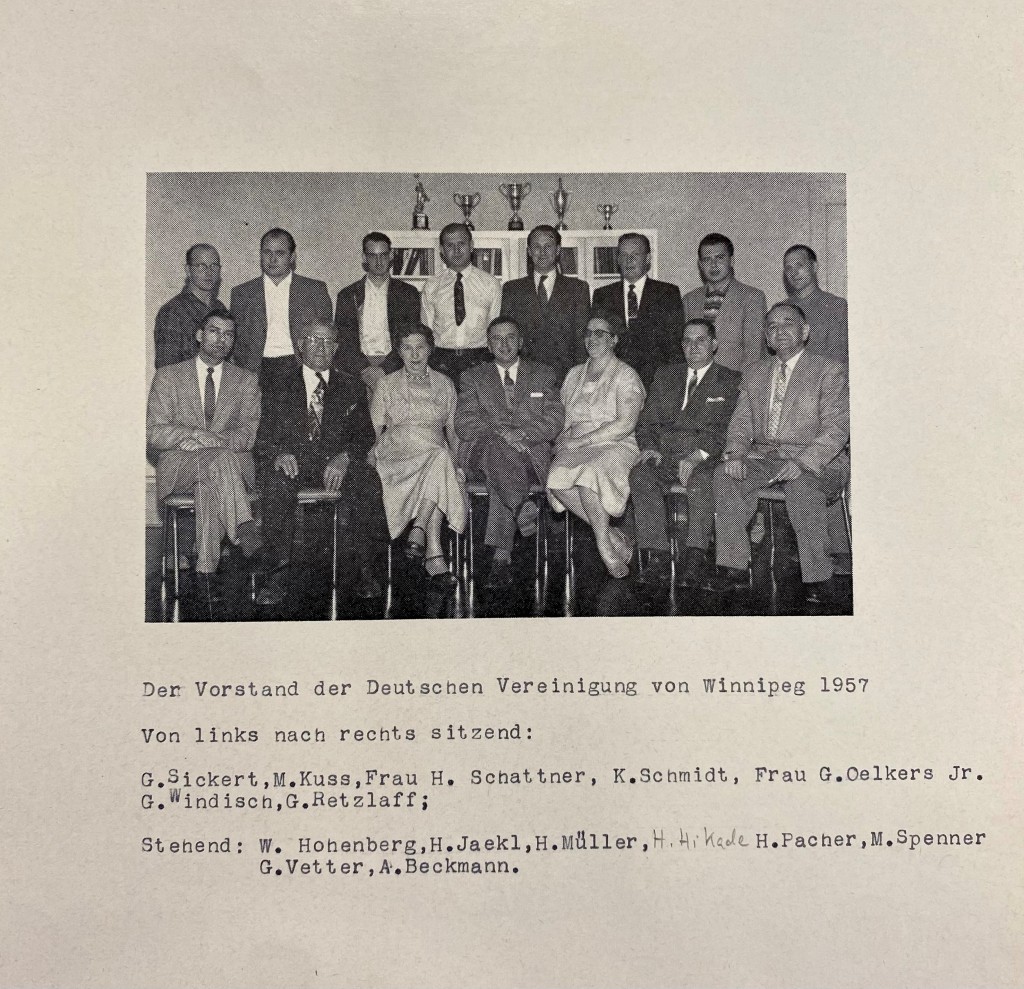
From left to right seated:
G. Sickert, M. Kuss, Frau H. Schattner, K. Schmidt, Frau G. Oelkers Jr., G. Windisch, G. Retzlaff;
Standing: W. Hohenberg, H. Jaekl, H. Müller, H. Hikade; H. Pacher, M. Spenner, G. Vetter, A. Beckmann.”
Four years later, Sickert married Gerda (née Worgull), who had emigrated from Germany to share a life with him; they were together for 57 years. Sickert had a successful career as a personal and small-business accountant, beginning in 1962 and spanning over 50 years. He and Gerda ran this small business from their home, and through their success, were able to provide a good life for their family.
Over the years, Günther Sickert made meaningful contributions to the German community in Canada, particularly in Manitoba, serving in various positions at the German Society of Winnipeg, including two terms as president. He is known for helping to establish the Camp Neustadt campground at Lake Winnipeg and facilitating the work of core club groups: The German Society Choir, the Mardi Gras Group (Der Treue Huzar), the FC Germania soccer team, the German Society Brass Band, the German Society Theatre Group, and the St. Hubertus Jagd and Angel Verein (Game and Fish Association). He also co-founded Villa Heidelberg, an independent living facility for seniors, and lent key support to the Kildonan Park Witch’s Hut. For his efforts in promoting, funding, and advocating for the German community, he received the Citizenship Award from the City of Winnipeg, as well as the Bundesverdienstkreuz from the Federal Republic of Germany.
Sickert’s personal interests included stamp collecting and reading – favourite topics included history, geography, and other non-fiction, but also mystery novels. He liked hearing people’s stories and learning more about their background. In 2015, at the age of 87, Günther Sickert passed away at the Victoria General Hospital.
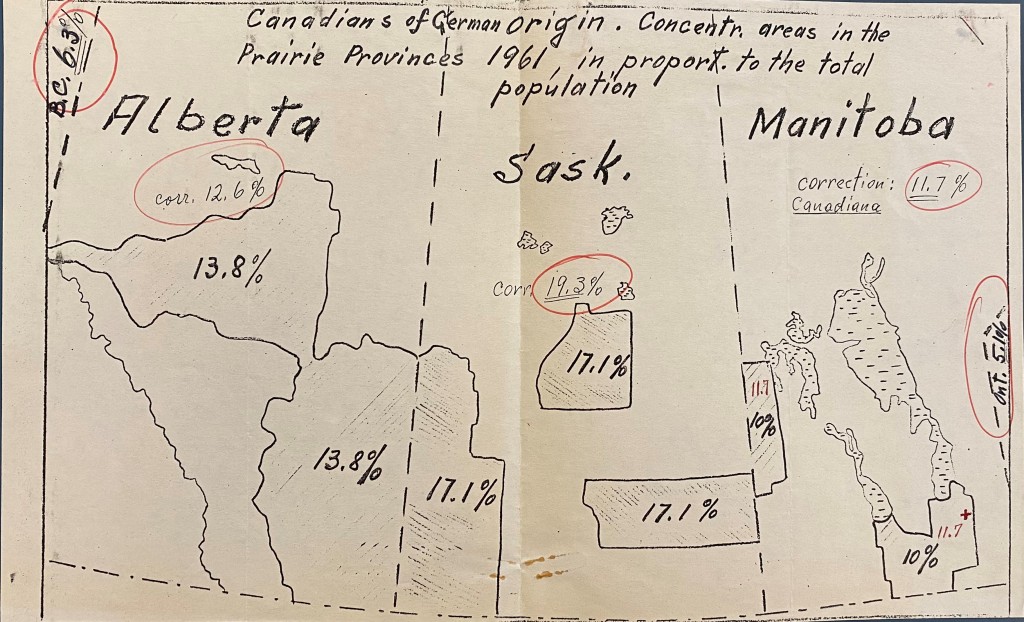
Though Sickert is no longer alive, he leaves behind a legacy of culturally rich, carefully maintained records. His collection is spread across 18 boxes, many of these containing scrapbook pages of mainly original newspaper clippings detailing important events and news updates from both Canadian and German sources, such as the one below.
The order of the collection remains largely unchanged from how it was received in 2015, save for some photographs and maps, which were moved to larger boxes to be stored flat for conservation purposes. By maintaining the original order, we hope to preserve the essence and intention behind the collection of these records. The full description of the Günther Sickert Collection along with a detailed finding aid can be found here.
We are excited for this collection to go live and encourage anyone interested in learning more about the history of German immigration in Canada and about Günther Sickert’s work with the German community in Manitoba to email archives@uwinnipeg.ca and set up an appointment to view the collection.
Do you have personal documents, such as diaries, letters, or photographs, that you would like to donate to the archive? If you would like to learn more about what kinds of documents you can donate, and how you can protect your personal data and rights, please contact Angela Carlson, Project Assistant in German-Canadian Studies, at 204.988.7683 or an.carlson@uwinnipeg.ca.
Sources
- Günther Sickert Collection, University of Winnipeg Archives
- Günther Sickert obituary: Guenther Sickert Obituary – Winnipeg, Manitoba | Neil Bardal Funeral Centre (neilbardalfuneralhome.com)
Photos of the collection taken by Angela Carlson

